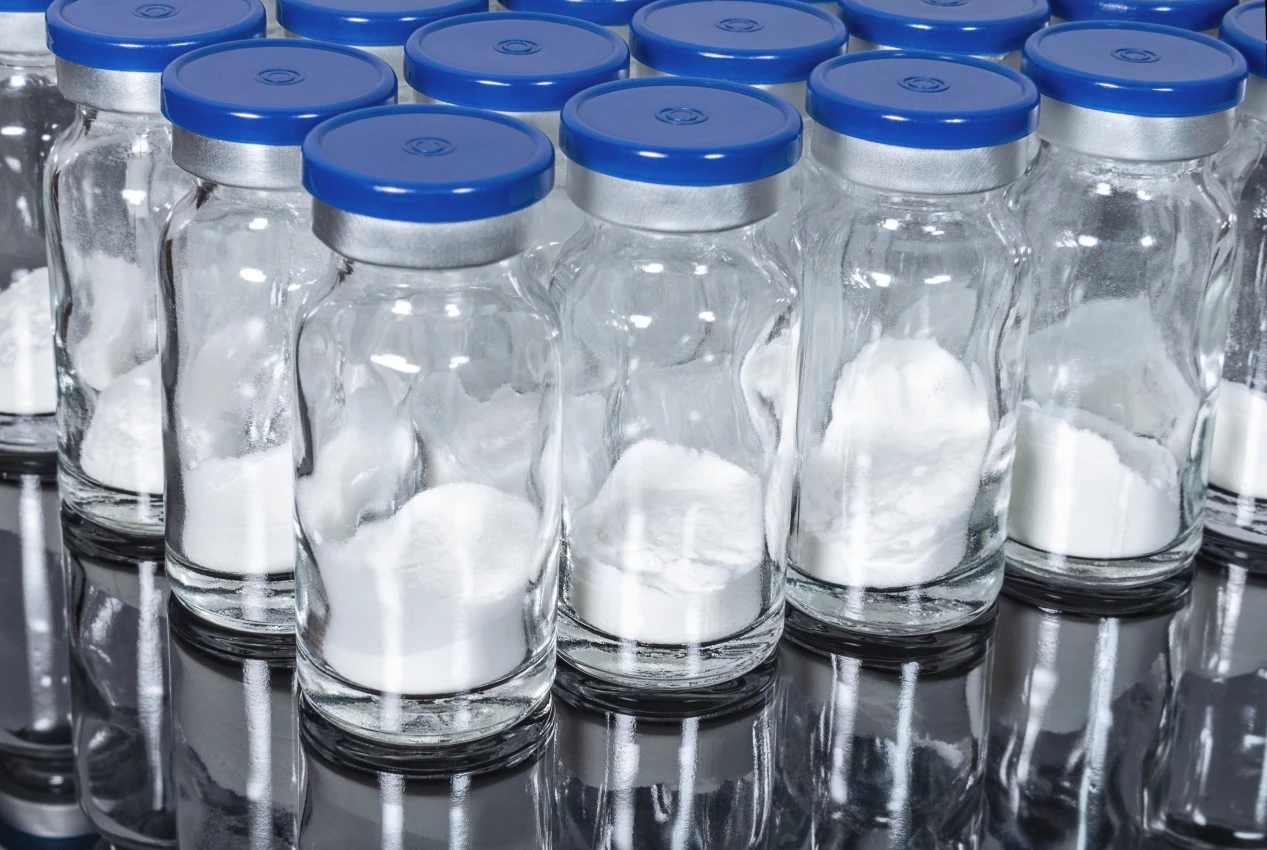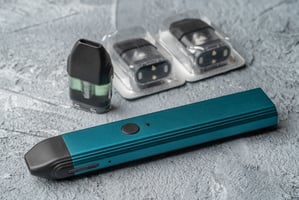For decades, the primary way to consume nicotine was to release it by burning and smoking tobacco. Now, heated tobacco products (HTPs) offer a similar experience to combustible cigarettes, but can...
Lyophilized products: The benefits of freeze drying to increase product shelf-life and stability.
Pharmaceuticals

Mar 22, 2023 | Published by Broughton
Pharmaceuticals
Lyophilization, also known as freeze-drying, is a process that is commonly used in the pharmaceutical industry to produce shelf-stable products. Lyophilized products are created by removing water from a product while it is frozen, allowing products that are not chemically stable in solution to have their shelf life extended. This process may also allow the product to be stored and transported at room temperature without refrigeration or other special storage conditions.
Introduction to Lyophilization:
Lyophilization has been used in the pharmaceutical industry for decades. It involves freezing a product and removing the water while it is frozen. The resulting product is a stable lyophilized powder that can be stored for long periods at room temperature.
The lyophilization process involves three main steps: freezing, primary drying, and secondary drying. The product is frozen at a low temperature, typically between -40°C and -80°C. This process turns the product into a solid, which allows it to dry without losing its properties.
During primary drying, the temperature is raised, and a vacuum is applied to the product. The process of heating under a vacuum results in sublimation; the solid water (ice) passes directly to the gas phase (steam) without transitioning through the liquid phase. This process removes most of the water from the product, leaving behind a porous, dried material. The final stage, secondary drying, involves further drying of the product to remove any residual moisture.
Applications of Lyophilized Products in the Pharma Industry:
Lyophilized products are used extensively in the pharmaceutical industry for various applications. Some of the most common applications include:
Drug Formulation: Lyophilized products are commonly used in drug formulation. Manufacturers can use these products to produce injectable drugs, such as vaccines and biologics. The lyophilization process allows the drugs to be stored and transported at room temperature, which increases shelf life where products are chemically unstable in solution.
Diagnostic Tests: Lyophilized products are also used in diagnostic tests. Testers can use them to stabilize reagents and other materials used in diagnostic tests. This helps to improve the tests' accuracy and reliability, allowing them to be stored and transported at room temperature.
Tissue Preservation: Lyophilization can preserve biological tissues like skin, bone, and cartilage. The process removes the water from the tissue, which prevents bacterial growth and degradation. This allows the tissue to be stored for long periods and used in surgical procedures.
Benefits of Lyophilized Products:
Lyophilized products offer several benefits. These include:
Long Shelf Life: Lyophilized products have a long shelf life, which makes them ideal for use in the pharmaceutical industry. They can be stored at room temperature for long periods, which makes them more accessible to patients and reduces the need for refrigeration.
Improved Stability: Lyophilized products are more stable than other types of products. They are less likely to degrade or lose their properties over time, which makes them more reliable and effective.
Easy Transport and Storage: Lyophilized products are easy to transport and store. They can be transported at room temperature, which reduces the need for refrigeration or other special storage conditions, making them more convenient and accessible to patients.
As new advancements are made in the pharmaceutical industry, lyophilization will likely continue to be valuable in developing and producing drugs and other products. By using this process, pharmaceutical companies can create stable products that are easier to store and transport, making them more accessible to patients worldwide.
How Broughton can help:
Ensuring lyophilized products' quality, safety, and efficacy requires careful monitoring and testing throughout manufacturing. As a leading contract research organization (CRO) that provides testing and analytical services to the pharmaceutical industry, we offer services specifically designed to assist companies with lyophilized products.
Extractables and Leachables Testing:
During the lyophilization process, there is a risk that the product may come into contact with materials that could leach into the final product and potentially cause harm to patients. Our extractables and leachables testing service can help identify potential risks and ensure the lyophilized product is safe. Typically solid dosage forms are considered to be a low risk for the evolution of leachables on product storage. For lyophilized products, the outgassing of VOCs and Semi-VOCs from the rubber stopper used to close the vials give rise to a source of leachable chemical species. The ultra-low water content and high surface area of the lyo-cake make it highly effective at absorbing such chemical species. There are also considerations to reconstitution of the product in water and the subsequent liquid contact with the stopper and syringe components during dose administration.
Product Characterization:
High-performance liquid chromatography (HPLC) is a technique used to separate, identify, and quantify the components of a mixture. HPLC testing is essential for lyophilized products because it allows companies to verify the purity and quality of the final product. Our laboratory scientists have extensive experience in HPLC testing and can provide various services to assist companies with lyophilized products, including method development, method validation, and routine testing. HPLC Testing is used to determine the concentration of the active ingredient, confirm identity, and determine any preservatives or additives critical to the product's quality attributes (CQA). This would also include purity testing to determine impurities, degradants, and related substances.
Purity Testing:
Purity testing is another critical service that we offer for lyophilized products. Purity testing helps to ensure that the product contains only the intended active ingredient and that there are no impurities present that could affect the safety or efficacy of the product. Our expertise in purity testing ensures accurate and reliable results, giving companies confidence in the quality of their products.
A microbiological assessment may also be required to confirm sterility and the absence of endotoxins. We can manage all aspects of product characterization. Our testing and analytical services can help ensure lyophilized products' quality, safety, and efficacy to meet your regulatory responsibilities. If you’re working with lyophilized products and need expert testing and analytical services, please contact us to see how we can help.
.jpg?height=200&name=iStock-1481139503%20(1).jpg)

